The Best of 1969
As we enter Woodstock weekend, we look back 55 years, with 15 of 1969's most enduring albums.
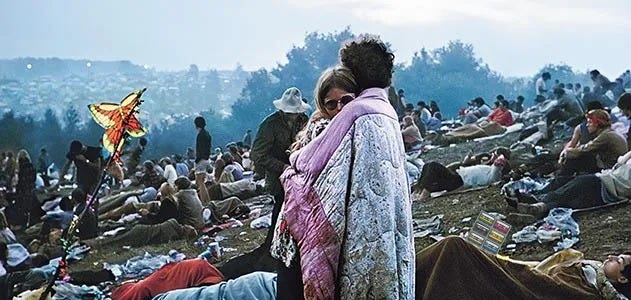
Where do you start with 1969?
The amount of debut albums by classic bands alone is staggering, not to mention second or third (or in some cases, second, third, and fourth) albums that came out that year that are now undisputed masterpieces. (I can make an argument that the five years between 1968 and 1972 include the greatest music ever recorded in all genres for the entirety of the 20th century. I don’t know if I’d win, but doggone it, I can make the argument.) I limited myself to 15 here, and I seriously thought about expanding it to at least 20 for my sanity, but, 15 is my arbitrary self-imposed limit, and I’m sticking to it.
After going back and forth for months, changing the list continuously up until the eve of its publication - no, really; 1969 is undoubtedly the toughest year to narrow down. It's a ridiculous idea. Why didn't I separate the list into genres? Simple: in 1969, album rock was just around the corner on the FM band. AM was still king and the radio played The Beatles and The Stones alongside Sly and the Family Stone and Isaac Hayes and The Band. So this list humbly hearkens back to those days of no walls and no limits, at least where pop radio was concerned.
Yes, there are glaring omissions here. Yes, you are encouraged to beat me up in the comments section if you want. Yes, I have perfectly good reasons why I included these while leaving out others. It was a tough process, but these albums ultimately still bring me the most pleasure and I believe they've stood the test of time.
Still, it's hard not to include the debut albums from Santana or the Allman Brothers Band or Free or Chicago or the MC5. It's crazy not to include Joe Cocker's two classics released that year, or the two from the Moody Blues or the two from the Bob Seger System. I could go on...and where the hell is At San Quentin? (Well, that's easy, At San Quentin is not At Folsom Prison, and that came out the year before. Sorry.)
Oh, and yes, Creedence Clearwater Revival should be here at least with Willy and the Poor Boys - just one of the three albums they released in '69 - but I covered that album on its 50th anniversary for Albumism, and my take on Green River from a couple of weeks ago can be found here. So there.
So below are the top 15 we’re left with. Let the dragging begin...
Isaac Hayes - Hot Buttered Soul
One of the architects of Memphis soul and the Stax sound, in 1969 Isaac Hayes found himself in the precarious position of having to follow up a commercial flop - his debut solo album from the previous year, Presenting Isaac Hayes - and having to deal with the fact that Stax had lost its entire back catalog to Atlantic Records. It turned out to be to his advantage - and ours - in that Art Bell gave Hayes complete artistic control to record what became Hot Buttered Soul. Backed by the Bar-Kays and with Rufus Thomas's son Marvell on piano, Hayes played Hammond and sang live while conducting the band simultaneously. Containing only four songs, two recent blockbusters for Dionne Warwick ("Walk On By") and Glen Campbell ("By the Time I Get to Phoenix") funked up and stretched out to well over ten minutes each, Hot Buttered Soul created its own subgenre: prog-soul.
The Stooges - The Stooges
The fascinating thing about The Stooges' self-titled debut, is that it sounds just as dangerous and unhinged as it did upon its release. Time has not diminished its initial impact in any way. The guitars still sting, the production is still raw, yet visceral. Iggy Pop's sneer is still nihilism set to music. Make no mistake, this is where punk began, and it rarely got better than "No Fun" or "I Wanna Be Your Dog." They may not have been critics' darlings at the start, but looking back (and to paraphrase Randy Vanwarmer), they came along right when we needed them most.
King Crimson - In the Court of the Crimson King
"This is the best group in the world!" A pull quote most bands would love to have, regardless of who said it; but when it comes from Jimi Hendrix, that's a given. Robert Fripp has relayed the story many times (Hendrix's reaction when he caught them in the act at the Revolution Club in the summer of '69), and can you blame him? Hendrix was on to something, though. In the Court of the Crimson King introduced the rest of us to progressive rock at its best. Building on all that came before - from orchestral pop to art-rock and psychedelia - ITCOTCK (as the proggers call it) bludgeoned us over the head one moment while lulling us into a sublime calm the next. That it sparked a hundred bands that looked to stretch the limits and challenge the idea of what rock could be in the next decade is only part of its lasting influence.
The Beatles - Abbey Road
Abbey Road sounds nothing like a band on the verge of breaking up. Quite the contrary, it shows The Beatles at their peak. It's also gloriously all over the map: back-to-basics rock'n'soul ("Oh! Darling"), plodding heavy-metal blues ("I Want You [She's So Heavy]"), joyous folk-rock ("Here Comes The Sun"), dancehall kitsch ("Maxwell's Silver Hammer"), while basically inventing the singer-songwriter genre ("Something"). Side two's medley proved The Beatles were still breaking new ground while on the verge of breaking up.
Led Zeppelin - II
From Kerouac and Steinbeck to Cormac McCarthy, the road has been a central part of literature for generations. Nowhere was it better exemplified in the world of rock in 1969 than on Led Zeppelin II. The songs were written while on the group's first extensive world tour and recorded in studios spread across two continents. It's the sound of constant, forward motion. The listener is continuously propelled along in a journey that builds upon Willie Dixon's original vision; crisscrosses through Howlin' Wolf, Robert Johnson, and Hubert Sumlin territory; and detours through Mordor and Melville before circling back to Rice Miller - back where it all began. With Zeppelin, it was always about using the blues as a foundation upon which to build their signature sound. II proved that the true adventure is the journey.
Dusty Springfield - Dusty In Memphis
Maybe it was Bobbie Gentry singing about that damn Tallahatchee Bridge. Maybe it was the incredible music that had been coming from Stax. Maybe it was a little of both, but by the late 1960s, southern soul had grabbed the imagination of not only the rest of the US but across the pond as well. That southern soul sound had been good to Jerry Wexler, so he thought it’d be a hoot to get Dusty Springfield down to Memphis with himself, Tom Dowd, Arif Mardin - plus players like Reggie Young, Bobby Emmons, Gene Chrisman, and the Sweet Inspirations - and cut her loose on everything from a Donnie Fritts/Eddie Hinton collab to songs by Goffin/King, Weil/Mann, and newcomer Randy Newman. The result was one of the most successful cross-pollination exercises in pop music history.
Elvis Presley - From Elvis In Memphis
Riding high just a month after the ‘68 Comeback Special broadcast, Elvis Presley decided it was time to take his career seriously again. He hid away with Chips Moman and his team of Memphis A-listers at American Sound Studio and cut his front-to-back best album. He hadn’t sounded this engaged since before joining the Army, and his song choices were immaculate. Here’s the King of rock’n’roll leaning deep into soul and finding inspiration back home in Memphis…one more time. The King sounded vital again.
The Band - The Band
The Last Waltz taking place during Thanksgiving was no random occurrence. At a time when the counterculture seemed to be rejecting everything having to do with the establishment and previous generations (fifty-five years on, Gen Z and Millennials are doing the same to Gen X and Boomers; the wheel keeps turning), The Band embraced family and tradition. The inside gatefold of the second album emphasizes this, and the music drives the point home. Where Music From Big Pink eased onto the scene seemingly from another time, The Band's self-titled follow-up (or "the brown album") deepened and expanded their focus, time out of mind. It was the sound of carnival side shows, old street-corner preachers, minstrel acts, traveling troubadours - it was pure folk music, and the birth of Americana.
Frank Zappa - Hot Rats
Going back and forth for days - weeks even - between the inclusion of either Hot Rats or Trout Mask Replica, I finally settled on Hot Rats for the simple reason that Captain Beefheart was featured on "Willie the Pimp" here and I could have the best of both worlds. (I'm still not completely convinced.) Either way, you can't lose. Hot Rats is the sound of Frank Zappa and Ian Underwood going jazz-ass crazy in the studio. It also featured crazed violin from Don "Sugarcane" Harris - as well as Jean-Luc Ponty on one track ("It Must Be a Camel") - bass from Shuggie Otis on one track ("Peaches En Regalia"), and an uncredited pre-Little Feat Lowell George on rhythm guitar. Hot Rats was short on Zappa's lyrical eccentricities and long on his musical and recording virtuosity, resulting in the groundbreaking jazz-fusion masterpiece it set out to be.
Miles Davis - In A Silent Way
Speaking of jazz fusion…but not really…but kinda…
In A Silent Way is new age music before new age music. This is mood music that is more stripped back and bare than even Kind of Blue ten years earlier. Once again, Miles Davis invented a new style of jazz while reinventing himself. With help from John McLaughlin, Chick Corea, Herbie Hancock, Wayne Shorter, Joe Zawinul, Dave Holland, and Tony Williams, Davis constructed an intense immersive experience that masqueraded, at first, as background music. Its two tracks spread across two sides and crept into your subconscious in a silent, but powerful way. It also led the way for all that followed.
Janis Joplin - I Got Dem Ol' Kozmic Blues Again, Mama!
The album that donned the best title of the year was also Janis Joplin's best album released during her all-too-short life. For the first time, free of the constraints of another band's name, Joplin pulled out all the stops, reached deep down, and unleashed the best white soul album of the year. Pulling from her deep love of blues and R&B, channeling all the rage she'd felt growing up feeling like an outsider in conservative Port Arthur, TX, Janis lets loose the power of her voice while shattering the expectations of the establishment and delivering a relentless slab of pure soul.
Sly and the Family Stone - Stand!
It's easy to take it for granted now, but Woodstock made stars out of several new or previously unknown acts (Santana, Mountain), and made superstars out of already established ones, such as Sly & The Family Stone. Released in the spring of 1969, Stand! had been out just long enough for the Woodstock crowd to be ready to sing and shout along to one of the festival's highlights, "I Want to Take You Higher." The intensity Sylvester Stewart and his family of funk exhibited live was fully captured on Stand! - from the energetic "Higher" to the timely call for unity in "Everyday People." 1971's There's A Riot Going On may be his most important release, but Stand! was Sly and the Family Stone's loudest and most joyous. It still made room for vital social commentary; proving, as Martha and the Vandellas did before them, that you can dance for justice as well as march.
Merle Haggard - Same Train, A Different Time
While the youth culture in 1969 was focusing on the coasts, namely Haight-Ashbury in San Francisco, CA, and Woodstock (well, Bethel), NY, Merle Haggard was singing the praises of white lightnin’ and flyin’ Old Glory on “Okie From Muskogee”. While that may have been tongue-in-cheek to an extent, there’s no doubt the Hag was spending the last year of the sixties with his ear more toward the past than on the hippies. Case in point: he devoted a double album to his hero, the Singing Brakeman Jimmie Rodgers, who’d been dead 36 years by then. It still stands as one of the Hag’s most affectionate tributes while proving that those blue yodels will be around long after the psychedelics wear off.
Tony Joe White - Black and White
Funky Soul from the Swamps was best represented in 1969 by this landmark album. Even though the second side is made up of covers, some understandable (“Who’s Making Love”) and some seemingly out of left field (“Look of Love”, “Little Green Apples”), Tony Joe was so damn genuine, he could take a Hal David/Burt Bacharach tune to the swamp and make it sound inevitable.
But it’s the first side that’s the deal-sealer. From the devastating “Willie and Laura Mae Jones” to swamp rock’s brightest shining moment, “Polk Salad Annie”, and everything between them, White’s songwriting is never fussy but flows as naturally as his Louisiana drawl.
Just for fun, here’s an American Bandstand clip of its regulars gettin’ into a mean mess of polk salad. After all, it’s got a good beat and you can dance to it…
Rolling Stones - Let It Bleed
From the ominous opening strains of "Gimme Shelter" to the final fade of "You Can't Always Get What You Want," the Rolling Stones delivered their best album in the last month of the last year of the '60s. By then, the promise of the Kennedys, the Beatles, the Civil Rights Act, the Summer of Love, and Woodstock had all been replaced by riots, protests, Vietnam, and marching in the streets. "War, children, it's just a shot away" indeed. Released a day before their disastrous free concert at the Altamont Speedway on December 6, 1969, Let It Bleed foretold that moment with a foreboding of disaster and dread throughout. It was sinister, evil, nihilistic, rebellious, hedonistic, and loud. It was the Stones at their best. The final cut closed the decade of idealism with the smack of reality: you'll get what you need, whether you want it or not.
Honorable Mentions:
Bob Dyan - Nashville Skyline
James Brown - Say It Loud I’m Black and I’m Proud
Neil Young and Crazy Horse - Everybody Knows This is Nowhere
Joni Mitchell - Clouds
Crosby, Stills & Nash - Crosby Stills & Nash
The Velvet Underground - The Velvet Underground
Fairport Convention - What We Did On Our Holidays, Unhalfbricking, Liege & Lief



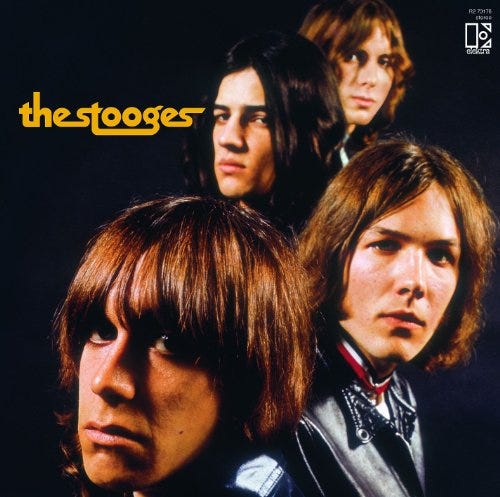
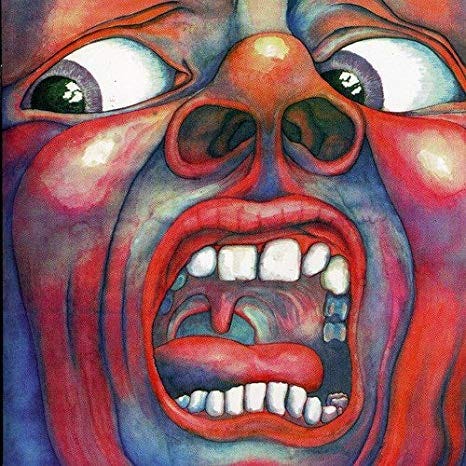
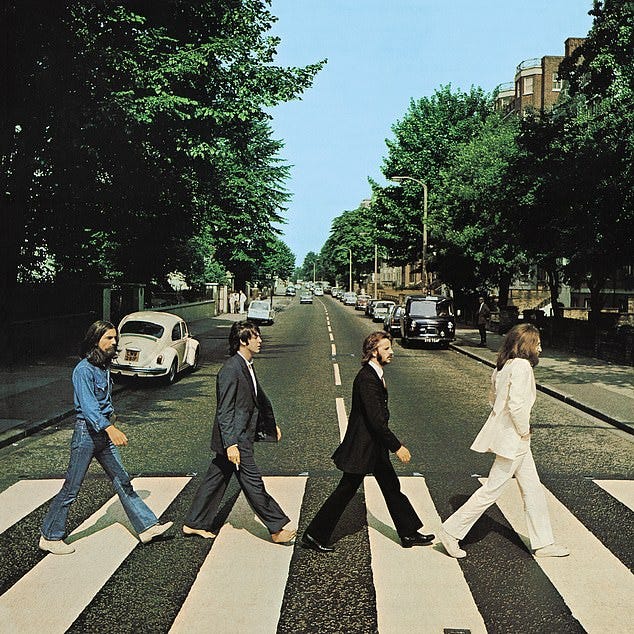
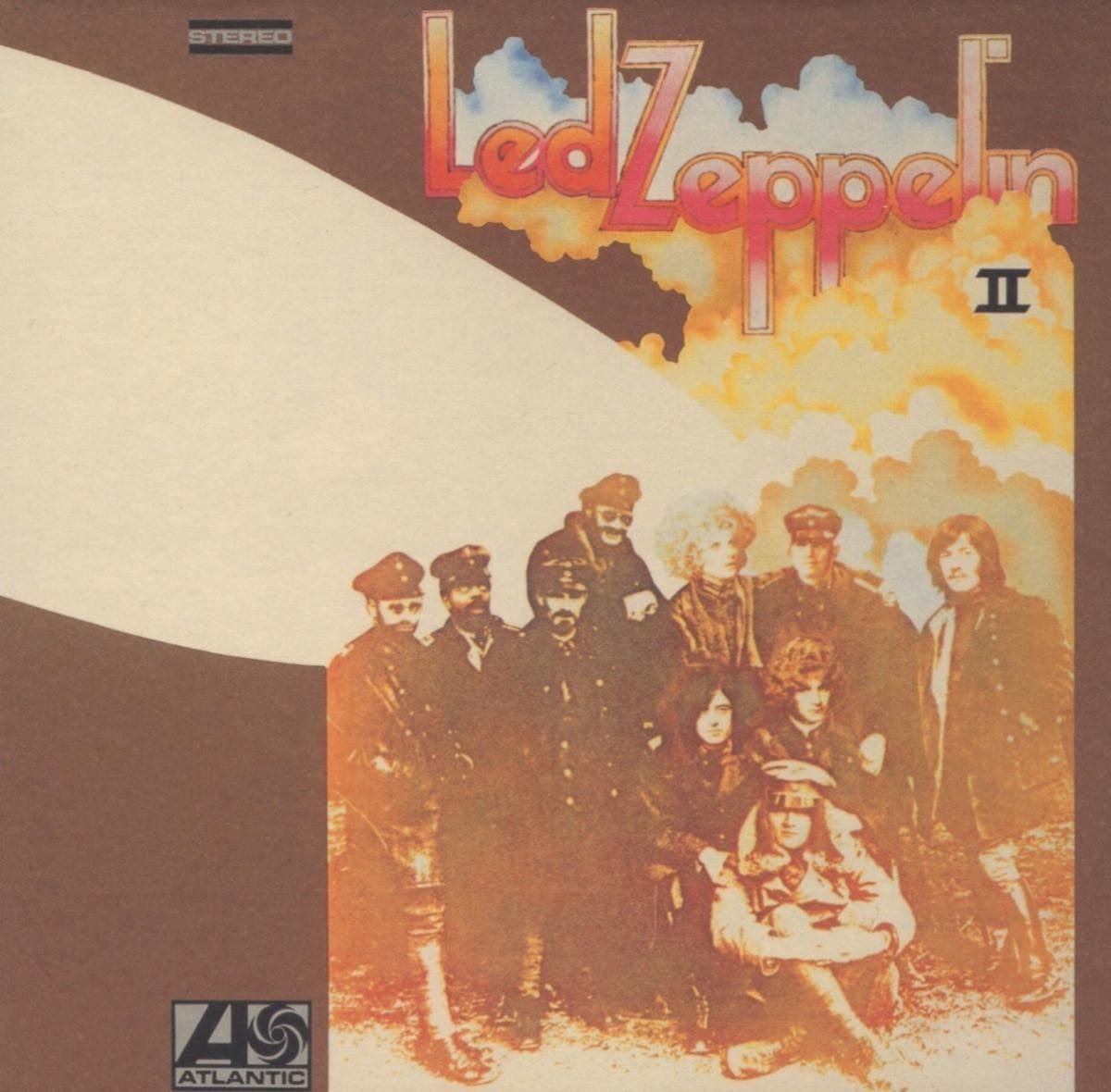
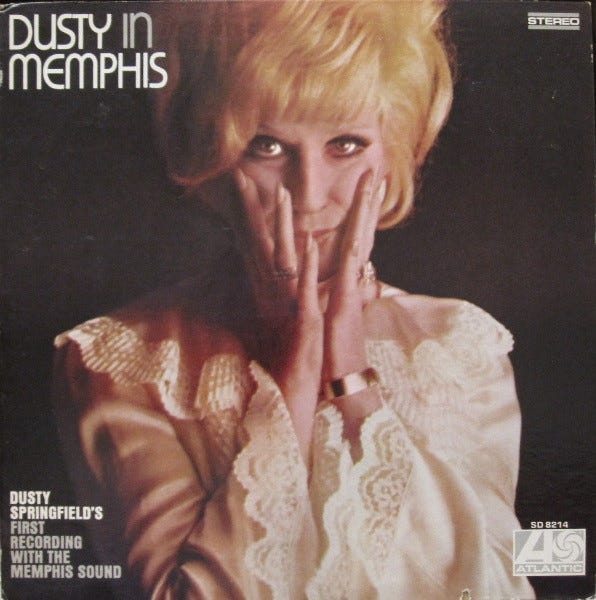
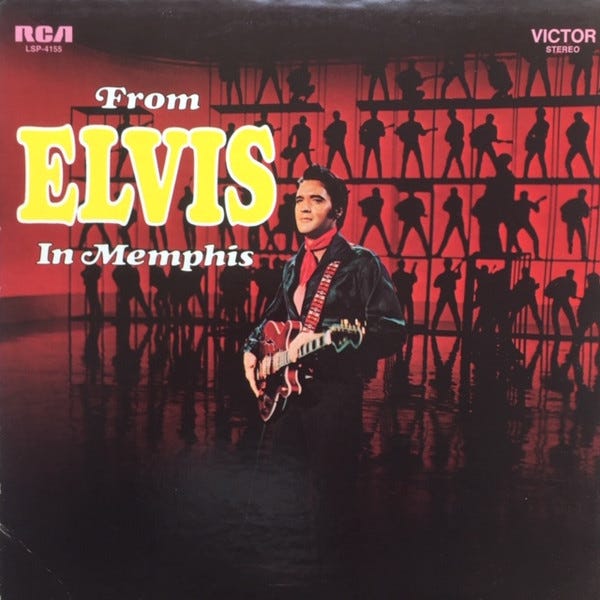
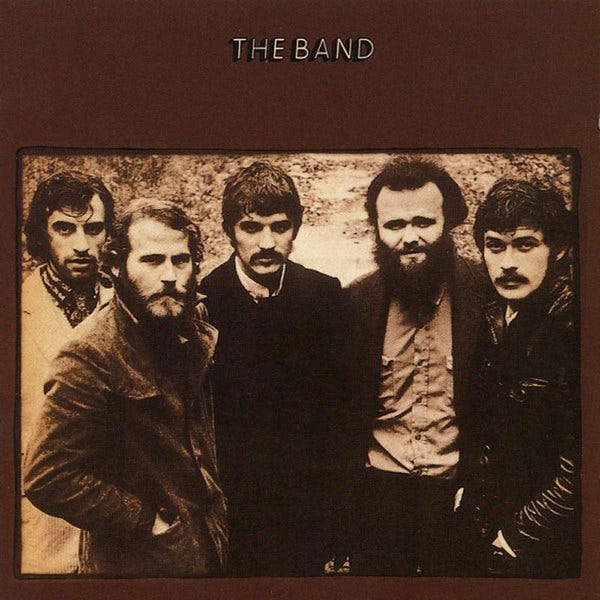
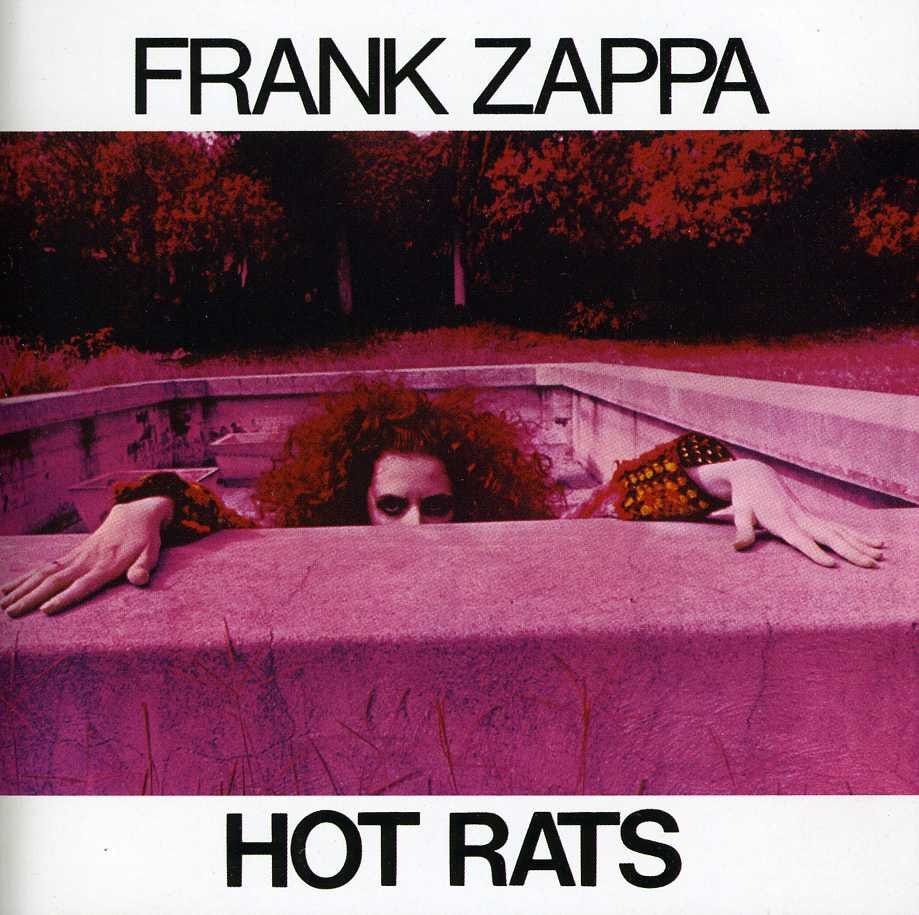
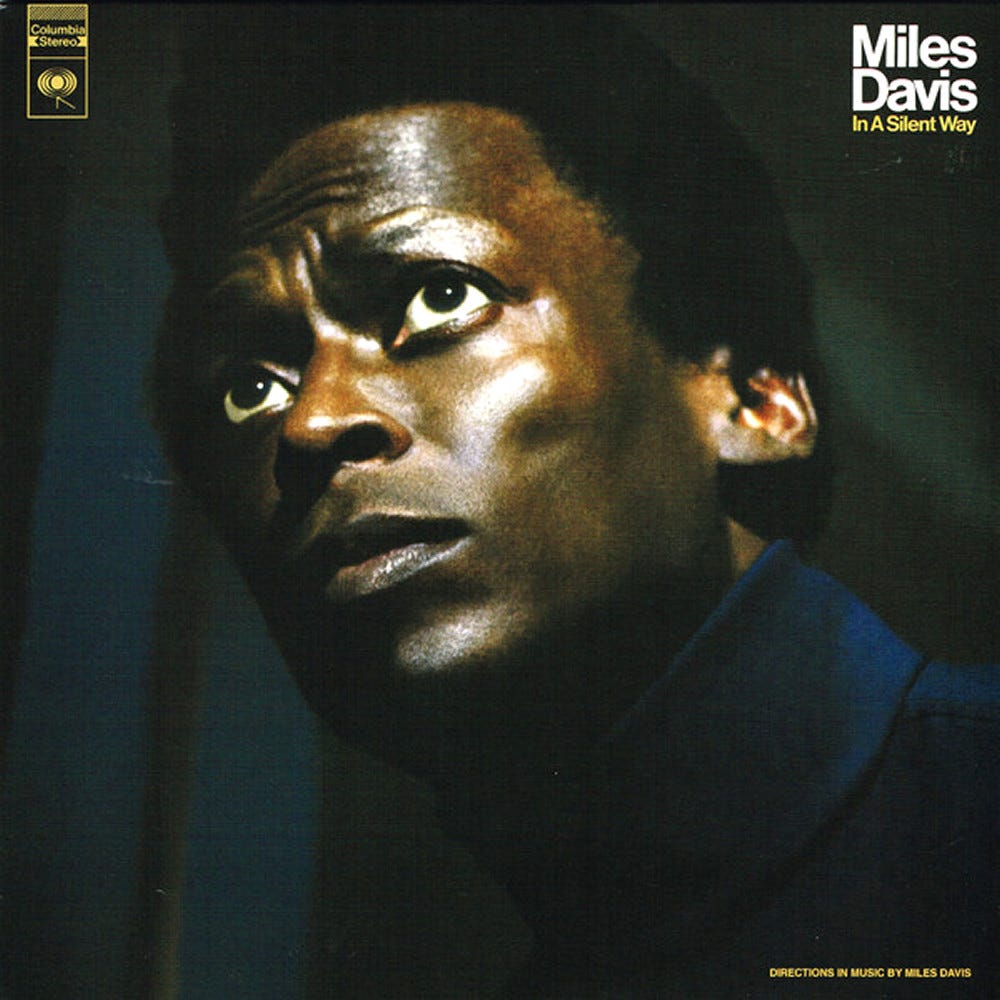
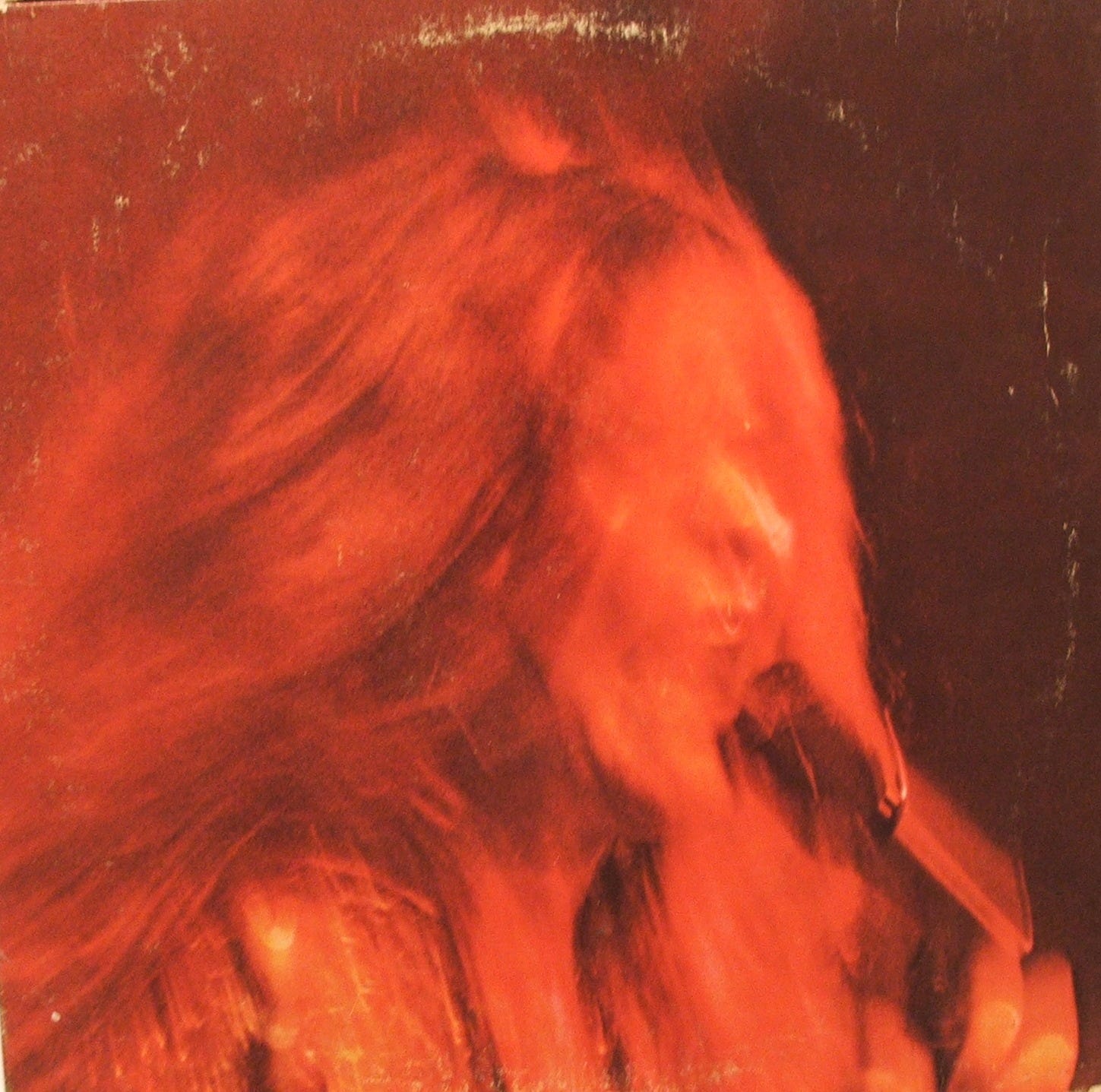
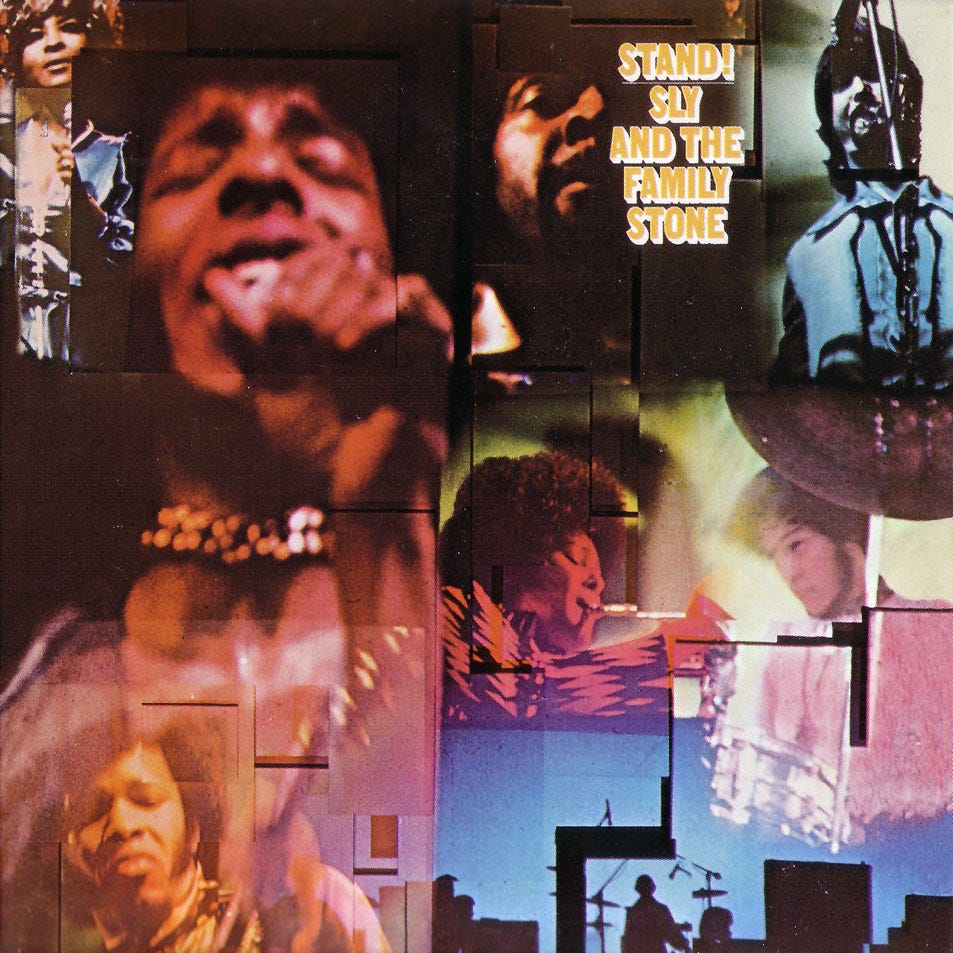

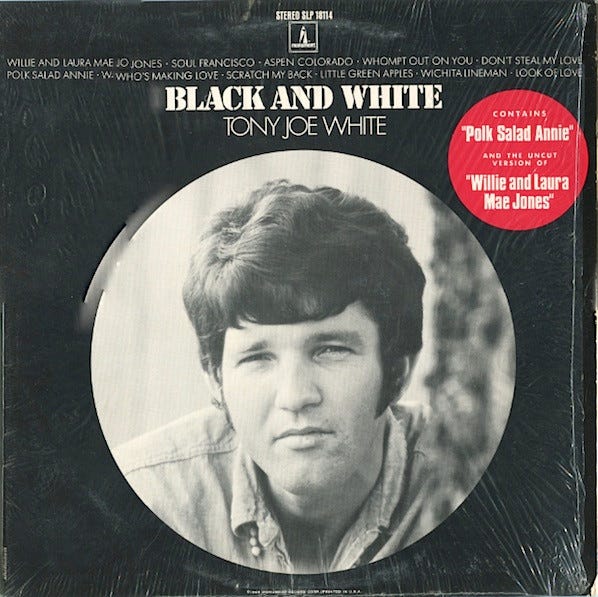
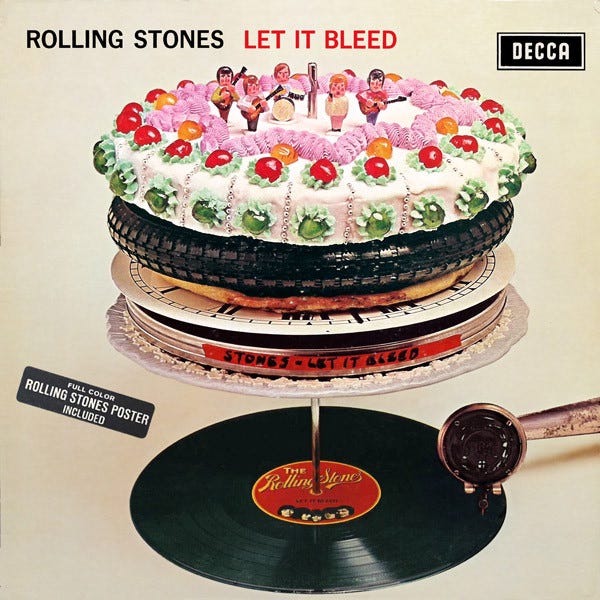
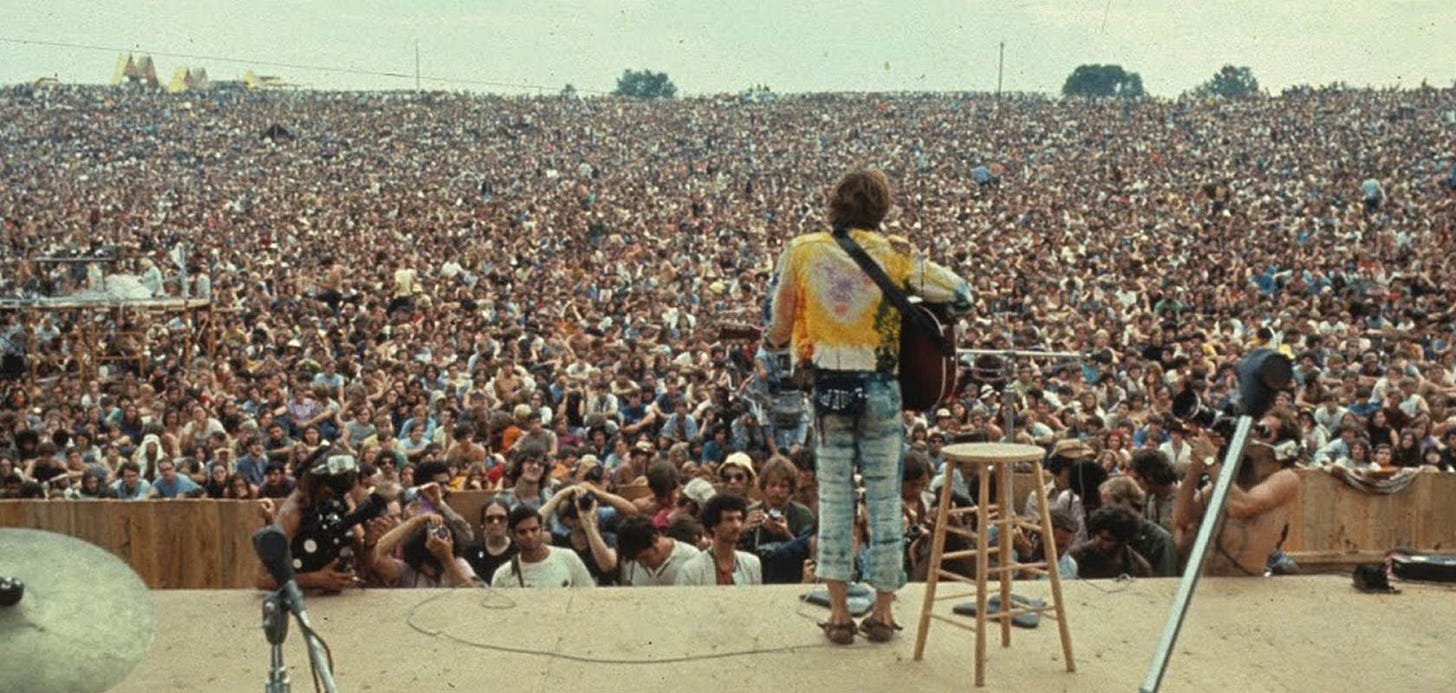

Wow! You got a wide spectrum there. Making me revisit things.
I’m doing a play based on the 70s and it starts in 69. It was a wild time. No wonder why the music came out so sporadically and Rich. Thanks.
You mentioned that in 1969, rock FM was just around the corner.
In 1966, Murray the K ( my absolute favorite disc jockey) “debuted on FM radio in 1966 when he became the program director and drive time disc jockey on WOR-FM, 98.7, one of the first FM rock stations.”
His album-sides-only show totally blew my mind, as I followed him from AM 1010 WINS to FM. There was nothing else like it.
A more politically active radio station in the 60’s was WBAI, a non-commercial station that also played full albums but also featured discussions, political content, The Firesign Theater, and massive other craziness. It was a great time for radio!